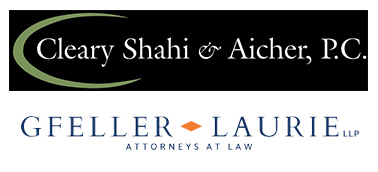February
2015
Insured and Counsel Sanctioned in Superstorm Sandy Case for Filing a Baseless Complaint
Superstorm Sandy has spawned thousands of lawsuits in New Jersey, New York and Connecticut. Many of these lawsuits were commenced by a handful of attorneys. In New Jersey alone, approximately 250 lawsuits were commenced by the Texas firm of Voss Law, P.C. The complaints filed in those actions are nearly identical, down to their typos. Judge William H. Walls, sitting in the United States District Court for the District of New Jersey recently imposed sanctions on Voss Law, P.C. and its client, Lighthouse Point Marina & Yacht Club, LLC (“Lighthouse”) for filing a “complaint that lacked factual basis.” Lighthouse Point Marina & Yacht Club, LLC v. International Marine Underwriters, 14-2974 (WHW) (CLW) (D.N.J. Jan. 20, 2015). Specifically, after previously dismissing Lighthouse’s complaint, the Court issued an order: (1) prohibiting counsel from seeking pro hac vice admission before Judge Walls for a period of one year, (2) requiring counsel to attach a copy of the order and opinion with any future applications for pro hac vice in the District of New Jersey, and (3) entering judgment against Lighthouse and counsel, jointly and severally, in the amount of $6,224.90 – International Marine Undewriters’ (International Marine”) courts costs and attorney’s fees to date.
By way of background, Lighthouse submitted a claim to International Marine for wind damage sustained by its property during Superstorm Sandy. In its complaint, Lighthouse alleged in a conclusory fashion, without supporting factual details, that International Marine failed to pay Lighthouse the benefit owed for “extreme external and internal damages, as well as other wind-related losses” at the property and that International Marine acted in bad faith by failing to conduct a reasonable investigation and in its denial or underpayment of Lighthouse’s claim. In response, Lighthouse asserted that it had sufficiently compensated Lighthouse for its losses and that Lighthouse failed to comply with the terms of the policy prior to commencing legal action by refusing to allow International Marine to inspect the property.
The Court ultimately dismissed the complaint after Lighthouse violated the terms of the parties’ joint discovery plan under which Lighthouse was required to make the property available for inspection. Lighthouse Point Marina & Yacht Club, LLC v. International Marine Underwriters, 14-2974 (WHW) (CLW) (D.N.J. Nov. 13, 2014). Notably, even after the Court told Lighthouse that further avoidance of an inspection would put the case at risk of dismissal, Lighthouse ignored International Marine’s frequent requests to inspect the property. The Court further ordered Lighthouse To show cause why the court should not impose sanctions under Rule 11(c)(3) of the Federal Rules of Civil Procedure for filing a claim that lacked merit, and for failing to properly investigate before filing. The Court specifically asked Lighthouse to provide an evidentiary basis for its allegation that International Marine failed to pay Lighthouse’s benefits relating to the cost to properly repair the Property, as well as, for alternate living expenses and content-related losses. It further demanded that Lighthouse include in its response, any appraisal of the damage claimed, a description of the method of appraisal, the credentials of the appraiser and the date of inspection.
Despite being warned by the Court of the possible consequences, including revocation of pro hac vice status, and liability for Inland Marine’s litigation costs, Lighthouse did not respond to the Court’s order. In its memorandum of decision, the Court noted that counsel had initiated more than 250 actions that were filed or removed to the District of New Jersey, and despite the fact that the plaintiffs, defendants and facts varied, the pleadings were nearly identical and that “filing such a large number of complaints within such a short time raises suspicion that they were prepared without investigation.” The Court went on to find that it was “evident” from the docket reports that many of the cases were not being prosecuted with diligence.
Ultimately, the Court imposed Rule 11 sanctions and noted that while lesser sanctions had been considered, the sanctions imposed were warranted:
Plaintiff’s counsel’s apathy when faced with a motion to dismiss, indifference to the Court’s Order to Show Cause, noncompliance with earlier orders of this Court, disregard for this district’s Hurricane Sandy Case Management Order, negligence in pursuing their client’s claim, apparent lack of investigation before and after filing, issuance of a settlement demand with no factual relation to the case, stonewalling of their adversary’s attempts to investigate, along with the apparent baselessness and potential fraudulence of the claim, and continuing pattern of neglect before other judges in this district, justify a more serious response.
As noted above, the Court’s sanctions were three-fold: 1) prohibiting counsel from seeking pro hac vice admission before Judge Walls for a period of one year, (2) requiring counsel to attach a copy of the order and opinion with any future applications for pro hac vice in the District of New Jersey, and (3) entering judgment against Lighthouse and counsel, jointly and severally, in the amount of $6,224.90—International Marine Undewriters’ (International Marine”) courts costs and attorney’s fees to date.
It should be noted that the Court’s original order was more severe, but was ultimately tempered in an amended order. See, Lighthouse Point Marina & Yacht Club, LLC v. International Marine Underwriters, 14—2974 (WHW) (CLW) (D.N.J. Jan. 13, 2015)(original opinion and order).






